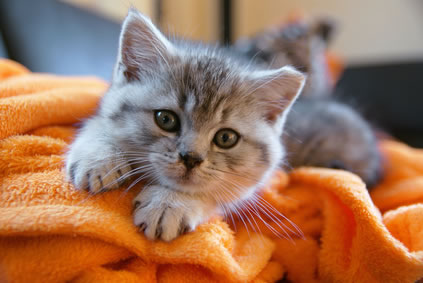Vaccine Recommendations for Feline Panleukopenia Vaccination (FPV)

September 6, 2016
Since most cats will be exposed to Feline Panleukopenia (FPV) at some point in their lifetime, the most effective prevention is through vaccination. There are three categories of vaccines:
Visit our Products page to find solutions for your feline’s medical needs.
- Core - vaccine that every cat should receive at some point in its life
- Noncore -- vaccine that only some cats need, the decision to use these vaccines is dependent upon factors such as geographic location and the lifestyle of the cat
- Not recommended -- vaccine that is not generally recommended for any cat
Vaccine Recommendations for FPV
Kittens should receive the first FPV shot between 6 to 8 weeks of age. If the living environment is known to be in risk of FPV, re-vaccinate kittens every three to four weeks until they are 16 weeks old. Booster vaccination should be at 1 to 2 years of age, after discussing with your veterinarian.What types of vaccines are used for FPV?
There are three kinds of vaccines for cats:- Injectable killed virus -- recommended for use in disease-free colonies
- Injectable Modified live strain -- not recommended for pregnant cats or kittens under 4 weeks of age
- Intranasal
Alternative Vaccines
An injectable vaccine containing FPV and strains of the herpes virus (FHB) and calicivirus (FCV) is also available. The recommendation for this combination vaccine is that:- Kittens should receive two doses with the first, given as early as 6 weeks of age and the second after 16 weeks of age
- Adolescent and adult cats should receive two doses given three to four weeks apart
- Both kittens and adults should receive boosters after one year, and then every three years
Visit our Products page to find solutions for your feline’s medical needs.
Need Regulatory Assistance
If you need help with regulatory or licensing issues, we're happy to help. We have a wide variety of resources to help you when issues arise.

Careers
Are you looking for a place to let your talents shine? At Covetrus, we help our practitioner customers better serve their patients and take pride in providing the best customer experience possible. Search our open positions to see our available opportunities.
Newsletter
Stay current with what’s going on with Covetrus, subscribe to receive our newsletter and email communications. Subscribers will receive the latest information in practice management, sales and marketing, animal health, and more.


Leave a comment